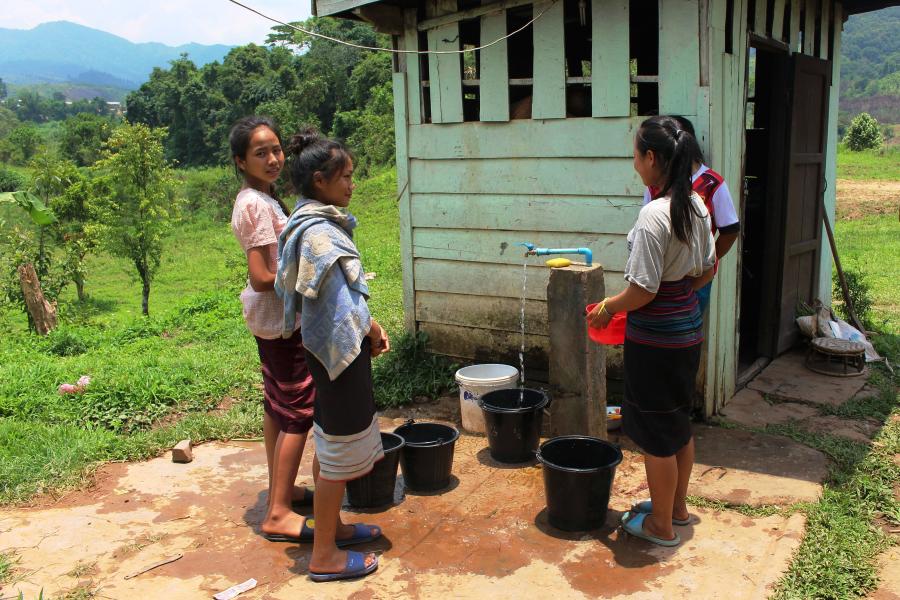WHO, UNDP, GEF and partners helping Lao PDR build a climate resilient health system
26 ສິງຫາ 2019
- WHO together with the government and partners are stepping up to respond to health threats resulting from climate change by incorporating climate change into existing health policies and programmes. A multi-country project funded by the Global Environment Facility (GEF) will make a major contribution to this.

Climate change is expected to threaten health in many ways. For instance, waterborne diseases (e.g. Salmonella, typhoid, diarrhoea) and vector borne diseases (e.g. dengue, malaria, zika) are expected to increase. Climate change also increases the risk of malnutrition and hunger, a particularly important issue for Lao PDR - over half of Lao PDR’s population lives in rural areas, mainly relying on subsistence agriculture and natural resources for their livelihoods. This means that they are very vulnerable to extreme weather hazards (e.g. droughts, floods, storms) that lead to crop failures. Extreme weather events like floods can also result in water that is unsafe for drinking or sanitation, and health facilities can add to this problem if medical wastes are not stored and disposed of properly.
“Helping countries adapt to the health impacts of climate change is a key strategic priority for WHO globally, regionally, and here in Lao PDR”, - said Dr Mark Jacobs, WHO Representative to Lao PDR.
WHO has been working with the Lao government to strengthen the health sector’s capacity to cope with climate change. This has included providing technical support on disease surveillance and health emergencies preparedness and response, including on the health impacts of flooding.
"It is essential to have trained health care workers plus the right supplies and equipment in place before floods or extreme weather events happen. For example, health workers with the right equipment and training can test water sources after a flood. They can then tell people which sources are safe and which have been contaminated. They can also advise people on how to make contaminated water safe, for instance by boiling it or adding chlorine tablets”, - said Dr Oyuntogos Lkhasuren, Technical Officer, WHO Laos.
The goal of the GEF funded project is to build the capacity of health workers to predict, plan for and communicate about climate change related health threats. They can advise communities on how to make water and sanitation systems better protected against floods. They can also lead by example by ensuring its hospitals and clinics are all flood-resilient and climate-smart.
Floods, extreme weather and other climate change related health emergencies can lead to mass illness or injury. This puts health workers and the health system under pressure. The GEF project helps the health sector address these challenges by helping it plan for them. It provides an opportunity to plan how to deliver timely, good quality services in these situations.
In the long run, the project aims to increase the climate resilience of the public health system at both national and subnational levels. Water suppliers will need to adapt their staff, systems and capacity so they can supply high quality water despite longer dry seasons and shorter, more intense, rainy seasons in Laos. The project will also strengthen the health sector’s capacity to study linkages between climate risks, climate related health condition and some disease groups such as mosquito-borne diseases. The project is a partnership between WHO, United Nation Development Programme (UNDP), GEF and the Ministries of Health of six Asian countries - Bangladesh, Cambodia, Lao PDR, Myanmar, Nepal, and Timor-Leste.
For more details on the project please visit: https://bit.ly/2TqwODL




